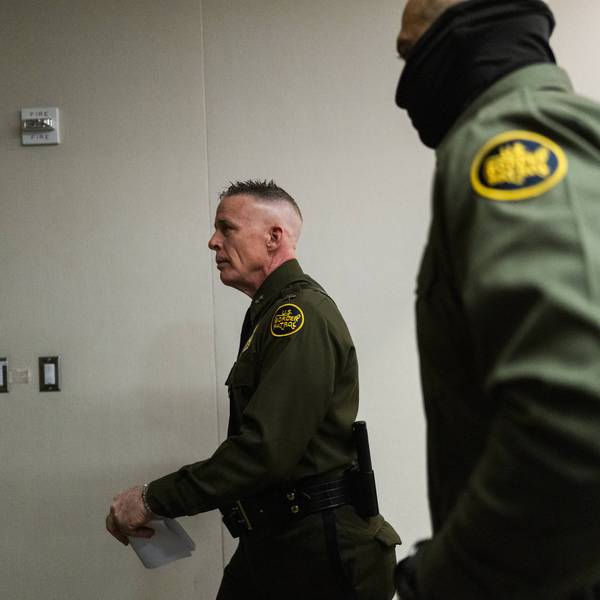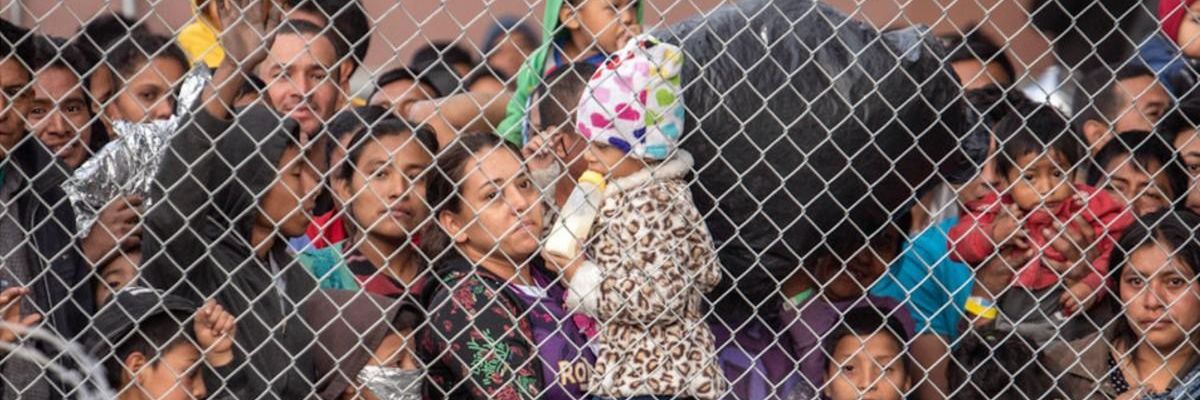My mother-in-law is 91. She came to the United States from Korea in 1966 with a baby in her arms. The U.S. welcomed her. She worked hard as a pastor's wife and on an electronics assembly line and built a stable future and life for her family in Portland, Oregon.
This is a moment of true moral reckoning for the President: he can begin to reshape his stained legacy on immigration from a path that upholds racism and denies immigrants their right to seek refuge, to one of justice and humanity.
I think about what would have happened had the U.S. said no, Mrs. Kim and her baby daughter, you cannot come; if it had said to my father-in-law, no, we realize you left North Korea on foot to escape persecution as a Christian and now you arrive to the U.S. from South Korea to attend seminary, but no, Mr. Kim, you too cannot come.
This is what the Trump administration's Title 42 policy, crafted two years ago by white nationalist Stephen Miller, has done on our southern border: it has turned away more than a million immigrants who seek protection and a better life in the U.S. The policy was promoted as a supposed COVID-prevention tool, but it has nothing to do with the health of our nation and has everything to do with the former administration's goals of closing the southern border to Black and brown immigrants ("Build the Wall!"). The Biden administration has surprisingly embraced the policy and continues to use it to expel thousands of migrants each day.
Title 42 has increased family separations and fueled violence and chaos at the southern border. Since President Biden took office, Human Rights First has tracked 8,705 reports of violent attacks against people who were expelled to Mexico under the policy. Migrants at our southern border face an increased risk of rape, kidnapping, and assault, and for Black migrants seeking safety, the threat is even greater. In September 2021, the Biden administration invoked Title 42 to specifically target tens of thousands of Haitian asylum seekers at the U.S. border who were fleeing political instability and the aftermath of a deadly earthquake.
As noted in the famous poem by Emma Lazarus on the Statue of Liberty, in addition to entrepreneurs, scientists, and doctors, people come to the U.S. "tired," "poor," "homeless," and "yearning to be free." They seek refuge and safety from their war-torn and impoverished home countries overwrought by the effects of climate change and corruption. Migration, of course, is not an issue unique to the U.S. In recent weeks, more than 2.5 million Ukrainians have fled their country and have been welcomed by aid workers, rows of baby strollers, and impromptu food banks in Poland and elsewhere. This is one of the miracles of human history: people have been able to move around to escape calamity and crisis. But when one of the wealthiest countries in the world stops that flow, we doom people and countries to a certain fate. And we also doom ourselves. As explained by former President George Bush, we need to "see immigration for what it is: not a problem and source of discord, but a great and defining asset of the United States."
The concept of asylum was first enshrined in U.S. law in the Displaced Persons Act of 1948 in response to the atrocities of World War II and the resulting seven million displaced people in Europe. The law was then expanded over time and embedded in the U.S. Code in the Refugee Act of 1980. While the U.S. has not always been kind to immigrants, our values are rooted in humanity and the dignity of every person to have the ability to succeed.
When President Biden ran for office, immigrant communities and advocates heard his promises to "welcome immigrants in our communities" and "reassert America's commitment to asylum-seekers and refugees" and we believed him. Instead, what his first year in office has shown us is that he will set aside the human rights of immigrants in the face of political pressure from far-right Republicans. But the U.S. has achieved great things since its founding 245 years ago, and we must continue to do so. We can humanely and safely welcome immigrants at the southern border.
We were relieved last week when, in response to litigation, the government ended use of Title 42 to expel into Mexico children who have come to the U.S. alone and there are reports that the administration is considering finally putting an end to the policy for all migrants. This is a moment of true moral reckoning for the President: he can begin to reshape his stained legacy on immigration from a path that upholds racism and denies immigrants their right to seek refuge, to one of justice and humanity. The time has come, Mr. President: end the use of Title 42 to block migrants at the border. The world is watching--and so is Mrs. Kim and millions of others who voted for you.




